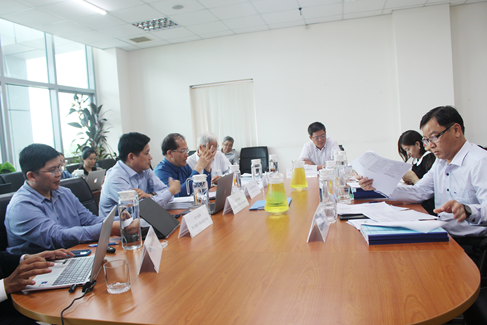
On September 19, the Department of Science and Technology of Ba Ria - Vung
Tau province organized an Advisory Council to evaluate and accept the results
of implementing the project "Impact of climate change on people's health
in Ba Ria - Vung Tau province and proposed solutions to respond ". The
topic was conducted by Associate Professor, PhD. Tran Ngoc Dang is the
chairman. Ho Chi Minh City University of Medicine and Pharmacy is the presiding
agency. Attending was Mr. Tran Duy Tam Thanh - Deputy Director of the
Department of Science and Technology, chairman of the council.
Currently, climate change has become a serious threat to public health globally, and Vietnam is one of the countries most heavily affected. With a coastline of 3,260 km, our country faces serious challenges from natural disasters and extreme weather, leading to significant changes in disease patterns and the emergence of new diseases. Ba Ria - Vung Tau province, located in the southern key economic region, is facing increasingly serious consequences from climate change, including saltwater intrusion, increased temperature, erratic rainfall, and the frequency of increasing storms. Faced with that situation, conducting research to comprehensively assess the impacts of climate change on people's health and propose response solutions is extremely necessary.
The study was conducted with four main objectives: (1) Assess the impact of climate change on a number of vector-borne diseases, digestive infections, and acute respiratory infections over 15 years (2003-2018) in 8 districts/cities of Ba Ria - Vung Tau province; (2) Assess the health sector's safety and ability to respond to climate change; (3) Build and manage databases, map areas affected by climate change on health; (4) Develop epidemic forecasting software based on weather factors and Google Trend to respond to climate change.
After implementation, the project has fully completed its contents and achieved many important application results. Research has clearly identified the relationship between weather factors and the incidence of infectious diseases such as dengue fever, hand, foot and mouth disease, diarrhea and flu in Ba Ria - Vung Tau.
The study was also successful in mapping areas affected by climate change, clarifying factors such as exposure, sensitivity, adaptive capacity and vulnerability of areas to specific climatic phenomena such as saltwater intrusion, heatwaves, floods, landslides and tropical storms. In addition, the research has developed software for early prediction of dengue fever epidemics, capable of predicting from 1 to 16 weeks before an epidemic occurs, supporting local public health management. This software not only has scientific value but also has high practical applicability. It can be adapted for application in other areas.
With the results achieved, the Science and Technology Council agreed to accept the project. However, it is necessary to edit and complete the topic according to comments from council members.

 Previous page
Previous page Back to top
Back to top







